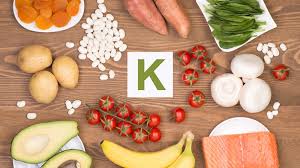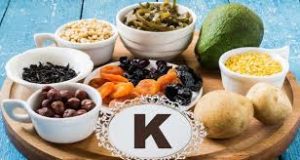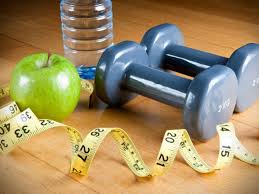Potassium is an alkali metal found mainly in intracellular fluids. It regulates neuromuscular excitability, heart rhythm, osmotic pressure, acid-base balance and water retention. The average daily intake of potassium is 4 g, which significantly exceeds the required requirement.
Potassium Limit
It is true that potassium is good, but it is advisable not to abuse it and not neglect its presence in our body. In fact, a deficiency can cause muscle weakness, hyperexcitability, arrhythmias, and electrocardiographic changes up to heart block and death. Being in a potassium deficiency situation is difficult, but not impossible. Increased muscle fatigue occurs in runners who frequently exercise in hot, humid climates and follow a diet based on processed foods that are high in sodium but low in potassium. In this situation, it is best to eat plenty of fresh food daily.
On the other hand, excess potassium in the body can cause fatigue, muscle cramps, hypotension, bradycardia, and cardiac arrest. Dr. Roberta Madonna explains: “Hyperkalemia can have a variety of causes, including kidney problems, the use of drugs that affect the kidneys themselves, excessive intake of dietary supplements; less commonly, it can also occur when cells release more potassium than normal. With exacerbation of hyperkalemia, cardiac arrhythmias may occur. Excess potassium in the blood is treated according to cases of decreased food intake and with the suspension of any dietary supplements. Under strict medical supervision, replacement of drug therapy responsible for hyperkalemia can be performed with alternative therapy. In more severe cases, the doctor may decide to resort to drugs that increase the excretion of potassium itself. Talk to your family doctor to assess whether to go deeper and investigate further to track down the causes and decide how to proceed! At the same time, I remind you that potassium is found in abundance in foods such as beans, peas, asparagus, potatoes, apricots, bananas, cauliflower, spinach, and peanuts. In general, the presence of fruits, vegetables and vegetables, fresh meat is still significant, while the contribution of drinking water is modest. ”

Potassium and sports
During a workout that is mostly anaerobic, potassium will be released from the muscles. This phenomenon, along with hemoconcentration, leads to an increase in the concentration and total content of potassium in the plasma, the degree of which correlates perfectly with the intensity of muscle work. Therefore, we are talking about hypokalemia. Prolonged and repetitive exercise should be controlled to avoid excessive sweating, which, if not controlled, can lead to kidney failure.
The rules of those involved in sports are well known: drink plenty of water, avoid sweets and alcohol, and sleep at least 8 hours a day. An athlete’s diet should never contain potassium, sodium and magnesium, as they belong to a family of those minerals that are present in relatively large quantities in our body and which are fundamental both for the composition of certain tissues, such as bones and teeth, both because that for the transmission of nerve impulses, they contribute to numerous metabolic reactions. In particular, potassium acts on metabolism, regulates blood pressure and contributes to muscle contraction, and we can easily find it in many natural foods such as vegetables, fruits, dairy products and legumes. Just look for those foods with a higher percentage of mineral salts. For example, the water-banana combo is a classic post-race dressing suggestion.
Potassium is good for the heart
According to the National Heart, Lung, and Blood Institute’s Dietary Approaches to End Hypertension (DASH) study, those who consumed 4,700 milligrams of potassium daily through a balanced, fruit-rich diet vegetables, whole wheat, low-fat dairy, fish, white meat, nuts and beans, blood pressure dropped in just two weeks. This is why runners who travel long distances need so much potassium. If food is not processed, cells remain intact, retaining all of their potassium content, making any other type of integration useless in situations of absolute normality.
But what exactly is potassium-rich food?
Potassium This is an essential mineral for the body, especially for the athlete. Athletes should consume an average of about 3,500 mcg of potassium per day, but a lot depends on the type of exercise, intensity, exercise frequency, and sweat loss. But let’s take a look at what these are the foods that athletes need to eat to prevent irritations such as fatigue, weakness, and decreased performance. A diet rich in fruits and vegetables to avoid losing glycogen, which is essential for muscle strength. Introducing foods such as beans, potatoes, raisins, prunes and spinach. After all, for whatever reason these foods are impossible to digest, an athlete can supplement their potassium stores with energy bars and specialty drinks. Foods that promote potassium loss, such as alcoholic beverages and licorice, are absolutely essential to avoid.


